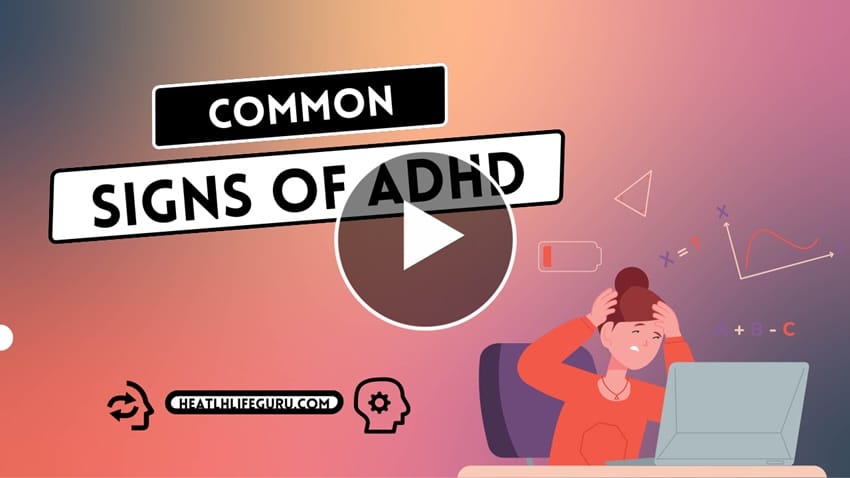It’s well understood that your diet significantly influences physical health, but have you ever pondered over the impact of your food choices on your mental well-being? There’s a mounting body of evidence that demonstrates the profound connection between your diet and mental health, as well as disease prevention. This article aims to shed light on this vital link and present actionable advice to help you maintain a balanced, nutritious diet that can optimize your mental health and stave off various diseases.
Contents
- The Connection Between Diet And Mental Health
- The Role Of Gut Health In Mental Well-being
- Essential Nutrients For Brain Health
- Influence Of Diet On Depression And Anxiety
- Diet’s Role In The Prevention of Neurodegenerative Diseases
- The Impact Of Poor Diet On Mental Health
- The Mediterranean Diet And Mental Health
- Role Of Hydration In Brain Function
- Practical Ways To Improve Diet For Better Mental Health
- Be Mindful Of The Role Diet Plays In Mental Health!
- Related
The Connection Between Diet And Mental Health

A healthy diet nourishes not just your body but also your brain. The foods you consume provide nutrients that can significantly impact brain health and mood. Research reveals that deficiencies in certain nutrients—like Omega-3 fatty acids, B vitamins, and antioxidants—can contribute to problems like depression, anxiety, and even cognitive decline. On the other hand, consuming a nutrient-rich diet can enhance brain function, mood, and memory.
Gut health also plays a pivotal role in mental well-being. This is due to the “gut-brain axis,” a bidirectional communication system between your gut and brain. A healthy diet fosters beneficial gut bacteria, which produce neurochemicals that regulate brain function and mood. Hence, maintaining a healthy gut microbiome through diet can lead to improved mental health.
The Role Of Gut Health In Mental Well-being

The gut is often referred to as the “second brain” due to the numerous nerve cells and neurotransmitters it contains. Research has revealed that a healthy gut microbiome contributes to overall mental well-being. Consuming probiotics and prebiotics, which promote good gut health, can positively impact mental health disorders such as anxiety and depression. A healthy gut microbiome can also help manage stress and enhance cognitive function.
On the contrary, an unhealthy gut environment can negatively affect mental health. Dysbiosis, a condition that occurs when the balance of bacteria in your gut is disrupted, can lead to issues like inflammation and a leaky gut. These conditions can contribute to mental health problems, including mood disorders and neurodegenerative diseases.
Essential Nutrients For Brain Health

There’s a range of nutrients that play an essential role in supporting brain health. For example, Omega-3 fatty acids, found in fatty fish, walnuts, and flaxseeds, are critical for brain function and development. B vitamins, found in whole grains, meat, eggs, and leafy greens, are known to aid in the production of brain chemicals that affect mood and other brain functions. Antioxidants, like those found in fruits and vegetables, can protect the brain from oxidative stress, leading to age-related cognitive decline.
Likewise, other minerals and vitamins like iron, zinc, and vitamin D have also been linked to brain health. Iron and zinc, found in lean meats, poultry, seafood, nuts, and whole grains, are critical for brain development and function. Vitamin D, which you can obtain from sunlight and foods like fatty fish and fortified dairy products, has been linked to mood regulation and cognitive function.
Influence Of Diet On Depression And Anxiety

Research has also linked certain dietary patterns to depression and anxiety. For instance, diets high in refined sugars have been associated with a higher risk of depression. Similarly, diets low in fruits and vegetables can increase the likelihood of experiencing anxiety. The nutrients found in fruits and vegetables, such as vitamins, minerals, and antioxidants, have a protective effect on mental health.
Moreover, certain foods can promote feelings of well-being. Foods rich in tryptophan, like turkey, eggs, and cheese, can boost serotonin levels in the brain, improving mood and reducing anxiety. Magnesium-rich foods, like leafy green vegetables, legumes, and nuts, can also help manage anxiety.
Diet’s Role In The Prevention of Neurodegenerative Diseases

A healthy diet can play a significant role in reducing the risk of neurodegenerative diseases like Alzheimer’s and Parkinson’s. Diets rich in fruits, vegetables, whole grains, lean proteins, and healthy fats are beneficial for brain health and can slow cognitive decline. The Mediterranean diet, which includes these food groups, has been shown to reduce the risk of Alzheimer’s disease.
On the other hand, diets high in saturated fats, refined carbohydrates, and added sugars can increase the risk of neurodegenerative diseases. These foods can promote inflammation and oxidative stress, which are implicated in the pathogenesis of these diseases.
The Impact Of Poor Diet On Mental Health

A poor diet can have severe ramifications for mental health. For example, diets high in processed foods and sugars can lead to obesity, diabetes, and heart disease. These conditions not only affect physical health but can also indirectly influence mental health by increasing the risk of depression and anxiety. Also, these conditions can cause hormonal imbalances, inflammation, and oxidative stress, further exacerbating mental health issues.
Furthermore, consuming too many refined carbohydrates can lead to blood sugar spikes and crashes, which can induce mood swings and worsen symptoms of depression and anxiety. Consuming too few fruits, vegetables, and lean proteins can deprive the brain of the essential nutrients it needs for optimal function.
The Mediterranean Diet And Mental Health

The Mediterranean diet, rich in fruits, vegetables, whole grains, lean proteins, and healthy fats, has been extensively studied for its health benefits. Research has shown that this diet can reduce the risk of heart disease, diabetes, and certain cancers. But it doesn’t stop there; the Mediterranean diet has also been linked to better mental health.
People who follow this diet have been found to have lower rates of depression and anxiety. The antioxidants, vitamins, minerals, and healthy fats found in the Mediterranean diet can support brain health and function, regulate mood, and reduce inflammation and oxidative stress.
Role Of Hydration In Brain Function

People often underestimate the power of hydration for brain function and mental health. Your brain is about 75% water, and even mild dehydration can affect cognition, mood, and energy levels. Drinking enough water can prevent dehydration-related cognitive decline and mood swings.
Conversely, dehydration can cause headaches, fatigue, and difficulty concentrating. These symptoms can contribute to stress and anxiety. Therefore, keeping hydrated is crucial for optimal brain function and mental health.
Practical Ways To Improve Diet For Better Mental Health

It’s easy to forget that what you put into your body can significantly impact your mental health. Thankfully, there are practical ways to improve our diet for a healthier mind. First and foremost, focus on consuming nutrient-rich foods like fruits, vegetables, whole grains, and lean proteins. These foods provide the vitamins and minerals your body and brain need to function at their best.
Additionally, try to limit your intake of processed and sugary foods, which can leave you feeling sluggish and moody. And don’t forget the power of staying hydrated! Drinking enough water throughout the day can help improve mood, reduce stress levels, and increase focus and concentration. Making these small changes to your diet can go a long way in boosting your mental health and well-being.
Be Mindful Of The Role Diet Plays In Mental Health!
It’s clear that diet plays a critical role in shaping mental health and preventing diseases. A balanced, nutritious diet can optimize brain function, regulate mood, reduce the risk of mental health disorders, and stave off various diseases. Although more research is needed to fully understand the complex relationship between diet and mental health, it’s evident that a healthy diet is a key factor in promoting overall well-being. Therefore, it’s vital that you make mindful dietary choices to nourish not just your body but also your mind.


